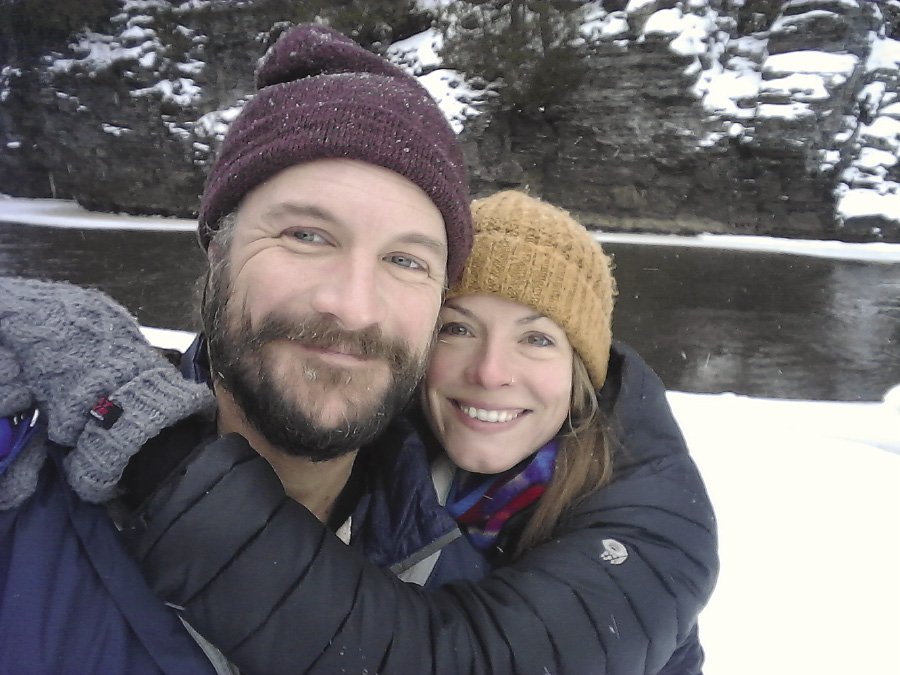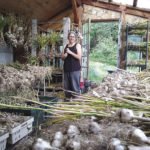Many of us dream of finding a partner we want to spend our lives with. Someone we can love and see a future with. Someone we can build a home and family with. What if you found that person, they lived close by and every time you went to visit them you had to get permission from a government agent carrying a gun? That’s the situation my fiancé and I find ourselves in.
I live in Grand Marais and my fiancé, Lara Hollway, lives in Thunder Bay. Our homes and communities are less than two hours apart along a breathtaking stretch of highway 61 that attracts tens of thousands of tourists every year. We live in the same forest, speak the same dialect of the same language, have the same cultural background, and gaze out upon the same big, blue lake every day. And yet, there is an imaginary line that separates us.
The border itself is real enough. At the only road crossing for hundreds of miles to the east or west, the Pigeon River demarks the border between Ontario and the Grand Portage Reservation in northeastern Minnesota. A body of water is a natural separation that makes sense to the mind, but the arbitrary selection of this one river and these series of lakes in a vast, wild land spot marked by thousands of lakes and sliced through by hundreds of rivers seems arbitrary at best. Somehow we ended up on different sides of the divide.
For the most part, the border has been an interesting diversion within our relationship and never a great obstacle. We have been crossing every week and have become known to the border guards on both sides. We now keep our passports in the glovebox and have developed the tendency to think about the border as a formality and a quaint little part of our relationship. It seems a little silly and unimportant. Surely the rules don’t apply to us. The vast immigration apparatus and legal system are designed for threats to national security from overseas, not from next door.
We understand the necessity of securing international points of entry, but Thunder Bay and Grand Marais are hardly foreign to each other. In fact, a village in Quebec or Hawaii would be much more exotic. Even going to Toronto or Minneapolis is a greater culture shock. And yet, the rules are the rules and they are applied uniformly throughout both nations.
I can no easier immigrate and work in Thunder Bay than a citizen of Germany, Afghanistan or The Philippines would be able to. The friendly faces of the customs officers at the Pigeon River can turn cold and immovable when ordered to deny entry. This became our new reality in mid-March when the Covid-19 pandemic closed the U.S./Canadian border and we were suddenly separated by a physical barrier that became more real than symbolic.
We are now in a holding pattern and playing a waiting game. On April 18 both governments extended border restrictions for another 30 days. Our relationship now depends on creative ways of staying in touch. We have had ‘dates’ on Skype, Google Hangouts and Zoom. We had a virtual dinner together that included cooking the same meal at the same time (pasta with veggies and marinara sauce) and then eating together while drinking a glass of the same wine (cabernet sauvignon). A few weeks ago, we both hiked to High Falls from our respective sides of the river and waved, smiled and yelled to each other over the sound of the roaring falls. The near reunion was bittersweet. It was a blessing to see each other, and a curse to be so close and yet so far apart.
We are both confident that our relationship will survive this forced exile, but we are also both looking forward to the re-opening of the border with great anticipation. This situation has made us realize how many ties we have on both sides of the border and how closely our two communities are intertwined.
For many of us who live in this region, Lake Superior is our shared identity and the force that binds us together rather than the two nation states that share her waters. The drive between Grand Marais and Thunder Bay is an hour and a half of unbeatable scenic beauty. I look forward to taking that drive again in the near future.—Corey Belt




